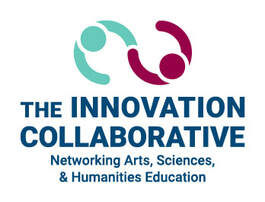For several years, the dangerous socio-scientific situations created by global warming, sea level rise, and an ever-increasing number of extreme weather events like hurricanes have demanded better community preparedness for such disasters. Students ages 11-18 are often being left out of community-based disaster preparedness programs. Even though there is considerable literature documenting that most preparedness decisions are made with or influenced by others such as family members, friends, coworkers, or neighbors, few of these papers explicitly include youth as important community disaster risk mitigation assets. For the last eight years, as a professional STEAM Teacher Educator, I have been developing and field testing a program called Kids Teaching Flood Resilience (KTFR) in highly flood prone Title 1 schools in Charleston, South Carolina. In 1996, the National Academies of Sciences, Engineering, and Medicine established the following conceptualization of Scientific Literacy:
Such literacy becomes meaningful knowledge when learners are afforded opportunities to develop and expressively communicate what they know. Arguably, being able to communicate with authority and creative agency is why having science knowledge matters and can save lives. Towards that end, the work I’ve done in KTFR emphasizes the importance of becoming “Place-Wise” and leans into the fact that our historically marginalized, low-income communities of color disproportionately bear situational flood hazard risks, especially during a hurricane event. Much of this program draws from the powerful work of scholars like urban science educator Christopher Emdin (Urban Science for the Hip Hop Generation: Essential Skills for the Urban Science Educator and Researcher, 2010). Following Emdin’s lead, throughout the KTFR curriculum, cause and effect relationships have been explored and expressed through poetry and rap. Here some examples of my students’ work:
Backstory: Formerly thriving African-American coastal communities have experienced the destruction and paving over of the expansive salt marsh ecosystems that were central to their culture, religion, commerce, recreation, and nutritional sustenance. As a result, these communities have been placed at higher flood risk, even before sea level rise amplified that risk. The KTFR research claim is as follows: When positioned, empowered, and legitimized as resources of knowledge and action, middle and high school youth have the energy and ability to assess hazardous flooding and extreme weather situations and create messaging for their families that advocates for risk reduction behaviors. The Get Hurricane Smart curriculum features five domains of Power Knowledge: 1) Get Weather Smart, 2) Place-Wise, 3) Storm Surge Smart, and 4) Water Safe.
To date, the KTFR Get Hurricane Smart Toolkit includes a Get Hurricane Smart Rap, a music video, a feature film, Never Say Whatever, Especially in a Hurricane!, a public service announcement, a Kahoot quiz, and a KTFR Sketchbook. The KTFR program is strongly aligned with the higher order “Creative and Innovative Thinking Skills” described by the Innovation Collaborative. During Flood Resilience Friday sessions, the classroom becomes a performance space, where we make it a point to show the similarities between Art Studio Habits of Mind and the Next Generation Science Standards (NGSS) Science and Engineering Practices: The NGSS “Cross Cutting Concepts” take the stage as “characters” in the emerging quest: Whatever “counts” as “hazard risk reduction communication” must be 1) grounded in scientific evidence and 2) show/teach cause and effect relationships, patterns in the data, and/or change over time in ways that make sense. Math matters a lot! All KTFR student “ambassadors” can explain the inverse relationship between Resilience Capacity and Disaster Risk: In the fall of 2023, in collaboration with the SC Sea Grant Consortium, the Citadel STEM Center, and the Near Center for Climate Studies at the Citadel, we applied for and received a two-year grant from the NOAA National Disaster Preparedness Program so that KTFR might be scaled and sustained in historically underrepresented flood prone coastal communities. Expected deliverables include: A KTFR Field Guide for Teacher Leaders, a series of KTFR & You instructional videos, a board game called Situation, a model for creating your own family-based KTFR event, and a montage film showing what successful KTFR looks like in practice. We have not nearly reached the turning point in this story, and the 2024 Atlantic Hurricane Season promises to be a doozy. Stay tuned.
0 Comments
Your comment will be posted after it is approved.
Leave a Reply. |








